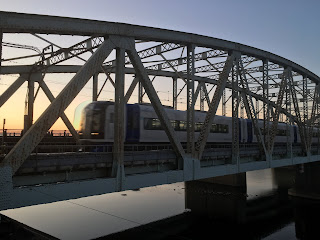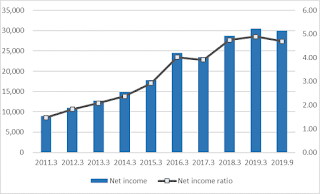Nagoya Railroad with a tailwind of growing airport demand
Nagoya Railroad expects increasing income for FY 2019
Nagoya Railroad Co., Ltd. announced that consolidated operating income for the fiscal year ending March 31, 2020 is expected to increase 1% from previous year to 50 billion yen.Previously, profits were expected to decline, but it was revised upwardly setting a new record high in this announcement.
Passengers of its railway business which is the company’s pillar exceeded expectations, and sales of condominiums in the real estate business were also strong.
Operating revenue is expected to increase by 3% to ¥ 639.0 billion, up 4 billion yen from the previous forecast although net income will decrease by 2% to ¥ 30.0 billion due to an increase in tax expenses. Growing demand for airport access that connects Chubu International Airport and Nagoya Station pushed up the company’s sales.
At Chubu Airport, the Aichi International Exhibition Center was opened in August and the second terminal for low-cost carriers (LCC) was opened in September.
President Takashi Ando says, “The flow of people to and from the airport and station has been created.” Duty-free sales, which indicates the amount of consumption by foreign visitors to Japan, are also strong and growing rapidly.
Manufacturing industries such as Toyota are concentrated along its railroad. Office workers and students getting on and off are increasing with these local industries doing well and employment being stable.
Net profit for the first half of 2019 increased by 21% to 19.3 billion yen, operating profit increased by 18% to 29.1 billion yen, and sales increased by 7% to 316.1 billion yen.





Comments
Post a Comment